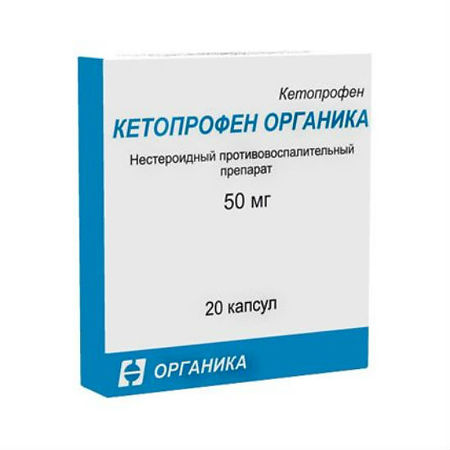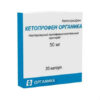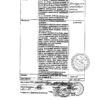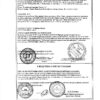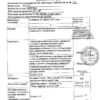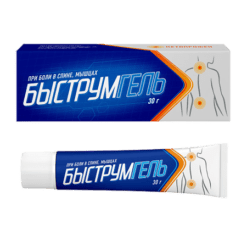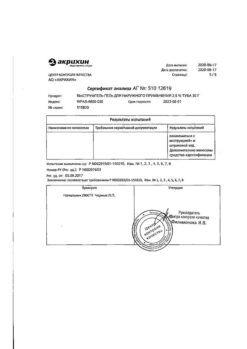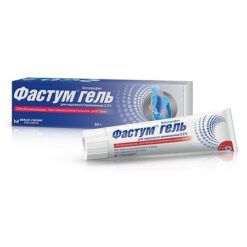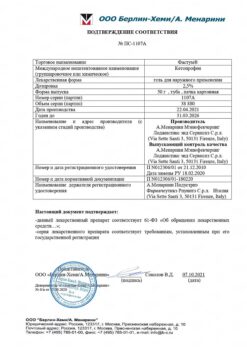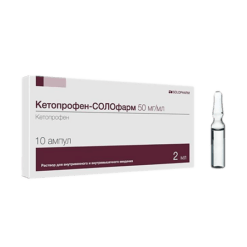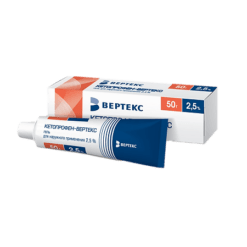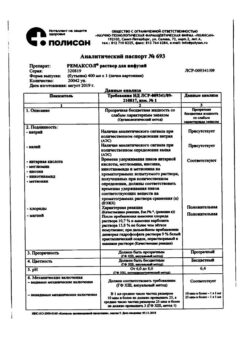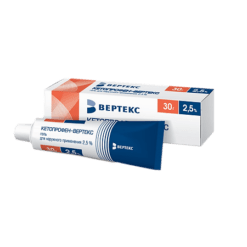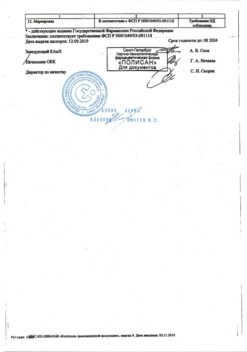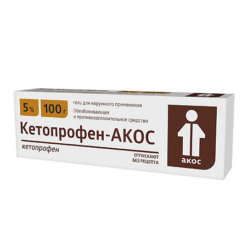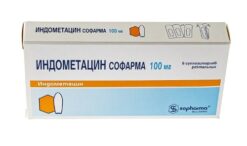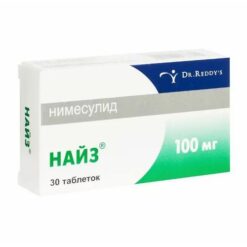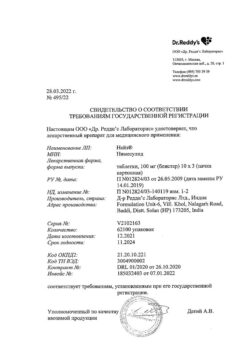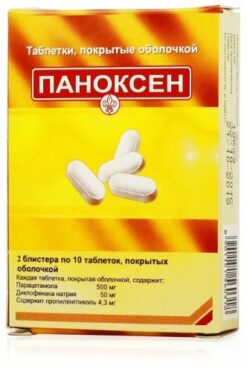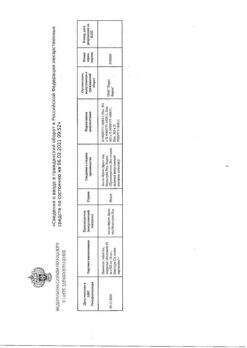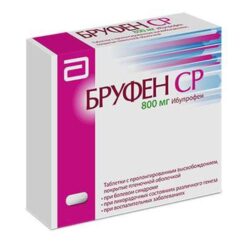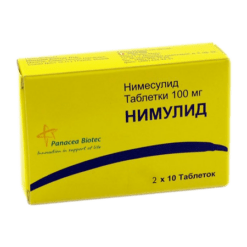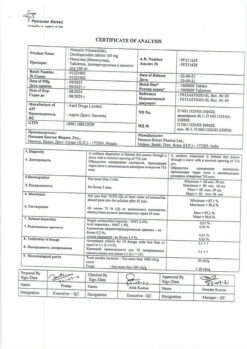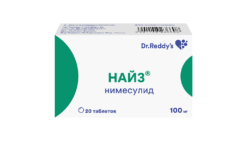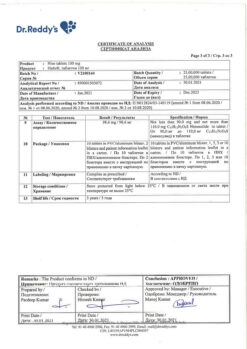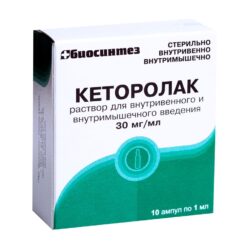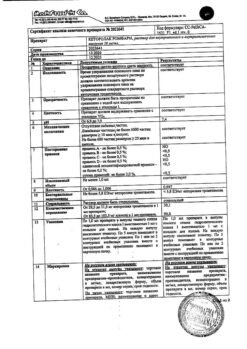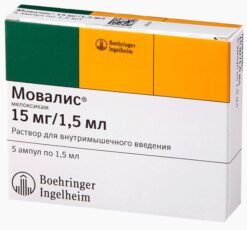No products in the cart.
Ketoprofen, 50 mg capsules 20 pcs
€3.64 €3.31
Description
Pharmgroup:
NSAIDs.
Pharmic action:
PNP, has anti-inflammatory, analgesic and antipyretic effects associated with inhibition of COX1 and COX2 activity, regulating the synthesis of Pg.
The anti-inflammatory effect occurs by the end of 1 week of use.
The lysine salt of ketoprofen has equally pronounced anti-inflammatory, analgesic, antipyretic effects. It has no catabolic effect on the articular cartilage.
Indications
Indications
Inflammatory and degenerative diseases of the musculoskeletal system: rheumatoid, psoriatic arthritis, ankylosing spondylitis (ankylosing spondylitis), gouty arthritis (in case of an acute attack of gout, fast-acting dosage forms are preferred), osteoarthritis.
Intended for symptomatic therapy, reducing pain and inflammation at the time of use, does not affect the progression of the disease.
Pain syndrome: myalgia, ossalgia, neuralgia, tendonitis, arthralgia, bursitis, radiculitis, adnexitis, otitis media, headache and toothache, in cancer, post-traumatic and postoperative pain syndrome accompanied by inflammation. Algodysmenorrhea, childbirth (as an analgesic and tocolytic agent).
Pharmacological effect
Pharmacological effect
Pharmaceutical group:
NSAIDs.
Pharmaceutical action:
NSAIDs have anti-inflammatory, analgesic and antipyretic effects associated with the suppression of the activity of COX1 and COX2, which regulate the synthesis of Pg.
The anti-inflammatory effect occurs by the end of 1 week of use.
The lysine salt of ketoprofen has equally pronounced anti-inflammatory, analgesic, and antipyretic effects. Does not have a catabolic effect on articular cartilage.
Special instructions
Special instructions
During treatment, monitoring of the peripheral blood picture and the functional state of the liver and kidneys is necessary. If it is necessary to determine 17-ketosteroids, the drug should be discontinued 48 hours before the study. Taking ketoprofen can mask the signs of an infectious disease.
If renal or liver function is impaired, dose reduction and careful monitoring are necessary.
During the treatment period, care must be taken when driving vehicles and engaging in other potentially hazardous activities that require increased concentration and speed of psychomotor reactions.
To reduce the risk of developing adverse events from the gastrointestinal tract, the minimum effective dose should be used for the shortest possible short course.
Active ingredient
Active ingredient
Ketoprofen
Composition
Composition
Capsules. 1 caps. – ketoprofen 50 mg.
Excipients:
hyprolose (hydroxypropyl cellulose klucel LF) – 1.2 mg,
mannitol (mannitol) – 10.5 g,
croscarmellose sodium (primellose) – 2.7 mg,
microcrystalline cellulose – 24.2 mg,
colloidal silicon dioxide (Aerosil) – 0.5 mg,
magnesium stearate – 0.9 mg.
Composition of the capsule shell:
sunset yellow (E110) or sunset yellow – 2%, gelatin – up to 100%.
Contraindications
Contraindications
Hypersensitivity (including to other NSAIDs), a history of bronchial asthma, rhinitis or urticaria caused by taking ASA or other NSAIDs, gastric and duodenal ulcers (exacerbation), ulcerative colitis (exacerbation), Crohn’s disease, diverticulitis, peptic ulcers, hemophilia and other blood clotting disorders, active gastrointestinal bleeding; severe renal failure (creatinine clearance less than 30 ml/min), progressive kidney disease, severe liver failure or active liver disease, condition after coronary artery bypass surgery, confirmed hyperkalemia, inflammatory bowel disease, childhood (up to 6 years), pregnancy (III trimester).
With caution. Anemia, bronchial asthma, alcoholism, tobacco smoking, alcoholic cirrhosis of the liver, hyperbilirubinemia, liver failure, dehydration, sepsis, CHF, edema, arterial hypertension, blood diseases (including leukopenia), stomatitis, ischemic heart disease, cerebrovascular diseases, dyslipidemia/hyperlipidemia, diabetes mellitus, peripheral diseases arteries, chronic renal failure (creatinine clearance 30-60 ml/min), history of ulcerative lesions of the gastrointestinal tract, presence of Helicobacter pylori infection, long-term use of NSAIDs, severe somatic diseases, simultaneous use of oral corticosteroids (including prednisolone), anticoagulants (including warfarin), antiplatelet agents (including clopidogrel), selective reuptake inhibitors serotonin (including citalopram, fluoxetine, paroxetine, sertraline), old age, pregnancy (I, II trimester), lactation period.
Side Effects
Side Effects
The frequency is classified as rare – from 0.01 to 0.1%; very rarely
From the digestive system: NSAID gastropathy, abdominal pain, dyspepsia (nausea, vomiting, heartburn, flatulence, loss of appetite, diarrhea), stomatitis, impaired liver function; rarely – erosive and ulcerative lesions, bleeding and perforation of the gastrointestinal tract, changes in taste.
From the nervous system: headache, dizziness, insomnia, agitation, nervousness, drowsiness, depression, asthenia; rarely – confusion or loss of consciousness, forgetfulness, memory impairment, migraine, peripheral neuropathy.
From the senses: noise or ringing in the ears, blurred vision; rarely – conjunctivitis, dry mucous membrane of the eye, eye pain, conjunctival hyperemia, hearing loss, dizziness; additionally for capsules – vertigo.
From the cardiovascular system: edema, increased blood pressure; rarely – tachycardia.
From the respiratory system: hemoptysis, shortness of breath, pharyngitis, rhinitis, bronchospasm, laryngeal edema (signs of an anaphylactic reaction); rarely – asthma attacks.
From the hematopoietic organs: rarely – agranulocytosis, anemia, hemolytic anemia, thrombocytopenia, leukopenia. High doses of ketoprofen can inhibit platelet aggregation, thereby prolonging bleeding time, and cause epistaxis and hematoma formation.
From the urinary system: edema syndrome; rarely – cystitis, urethritis, renal dysfunction, interstitial nephritis, nephrotic syndrome; rarely – hematuria.
From the immune system: reactivity of the respiratory system, including bronchial asthma, its exacerbation; bronchospasm or shortness of breath (especially in patients with hypersensitivity to acetylsalicylic acid and other NSAIDs); very rarely – angioedema and anaphylaxis.
Allergic reactions: skin rash (including erythematous, urticaria), skin itching, rhinitis; rarely – exfoliative dermatitis.
Other: increased sweating; rarely – hemoptysis, nosebleeds, myalgia, muscle twitching, shortness of breath, thirst, photosensitivity; with prolonged use in large doses – vaginal bleeding.
Interaction
Interaction
Pharmaceutically incompatible with tramadol solution. Reduces the effectiveness of uricosuric drugs, enhances the effect of anticoagulants, antiplatelet agents, fibrinolytics, ethanol, side effects of GCS and MCS, estrogens; reduces the effectiveness of antihypertensive drugs and diuretics.
Combined use with other NSAIDs, corticosteroids, ethanol, corticotropin can lead to the formation of ulcers and the development of gastrointestinal bleeding, increasing the risk of developing renal dysfunction. Co-administration with oral anticoagulants, heparin, thrombolytics, antiplatelet agents, cefaperazone, cefamandole and cefotetan increases the risk of bleeding.
Increases the hypoglycemic effect of insulin and oral hypoglycemic drugs (dose recalculation is necessary). Inducers of microsomal liver enzymes (phenytoin, ethanol, barbiturates, rifampicin, phenylbutazone, tricyclic antidepressants) increase the production of hydroxylated active metabolites.
Co-administration with valproic acid causes disruption of platelet aggregation. Increases plasma concentrations of verapamil and nifedipine, Li+ drugs, methotrexate. Antacids and cholestyramine reduce absorption. Myelotoxic drugs increase the manifestations of hematotoxicity of the drug.
Storage conditions
Storage conditions
In a place protected from light, at a temperature not exceeding 30 °C. Keep out of the reach of children.
Shelf life
Shelf life
2 years.
Manufacturer
Manufacturer
Organika, Russia
Additional information
| Shelf life | 2 years. |
|---|---|
| Conditions of storage | In the dark place at a temperature not exceeding 30 °C. Keep out of reach of children. |
| Manufacturer | Organika, Russia |
| Medication form | capsules |
| Brand | Organika |
Other forms…
Related products
Buy Ketoprofen, 50 mg capsules 20 pcs with delivery to USA, UK, Europe and over 120 other countries.

